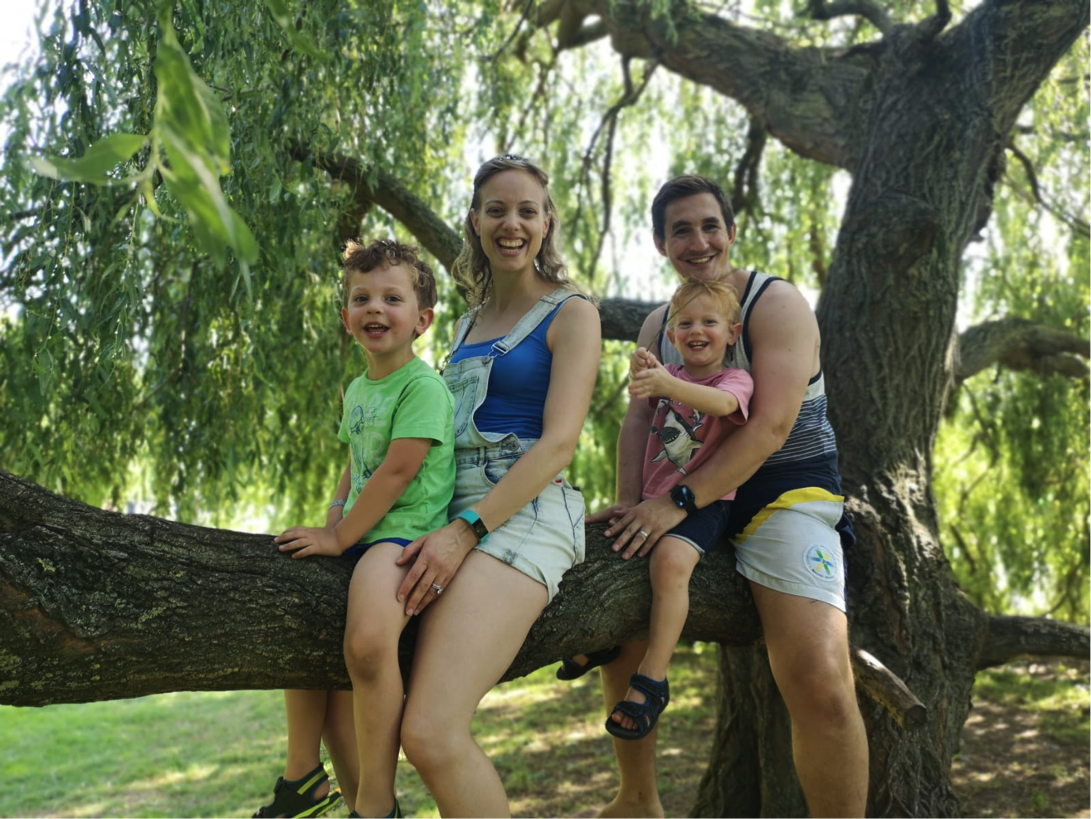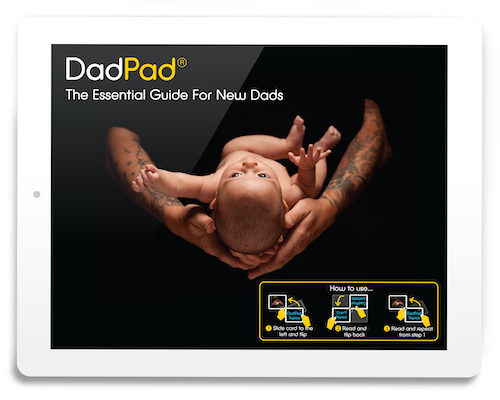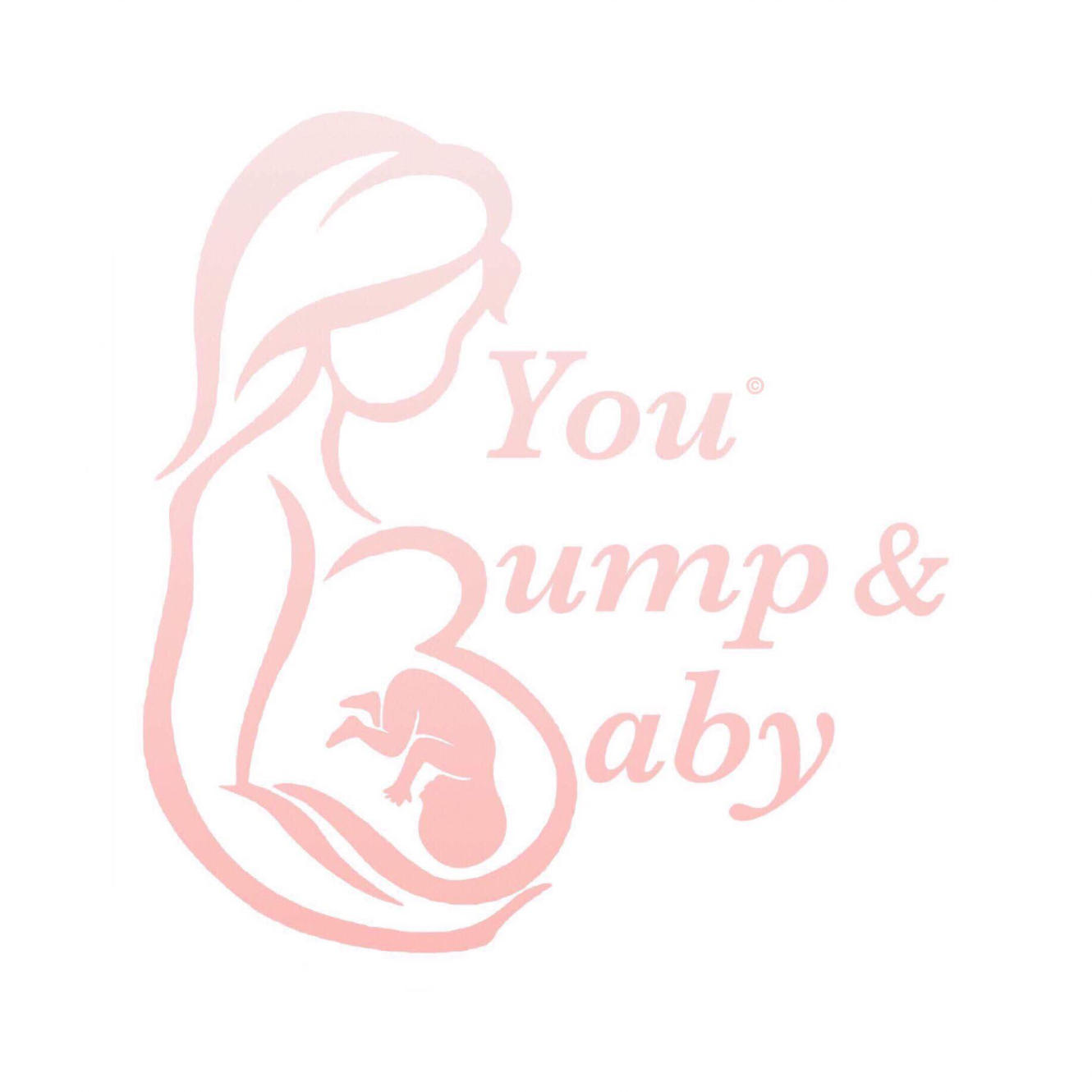
Parenting Advice, Q&A
Q&A: Abbi and Neil Taylor
Posted on 18th November 2019
For our November blog post, we’re delighted to have been able to speak with husband-and-wife team, Abbi and Neil Taylor. In addition to her ‘day job’ as a physiotherapist, Abbi runs antenatal courses in and around London, via the couple’s You Bump and Baby company.
Hi Abbi and Neil. Thanks for chatting with us. Could you start by telling us a bit about yourselves – who are you and what do you do?
A&N: Hello DadPad – thanks for having us.
N: Abbi is a qualified physiotherapist and so is very familiar with healthcare. She also has additional qualifications in pregnancy and postnatal care for mothers and mothers-to-be, as well as being a fully-qualified antenatal educator. I was a teacher in a ‘previous life’, focusing on sport, fitness and health, but now work for a charity which provides sport, health and wellbeing opportunities across Jewish communities in the UK. We are very proud parents of two boys – aged four and two – who really keep us on our toes, every day!

Your courses actually involve a final session with Neil, offering a dad’s perspective. Why did you decide to include this?
A: We found, in the classes we have been involved with, that the dad’s role was generally seen as being quite passive, and generally focused around supporting mum. This is not a bad thing, but Neil really felt strongly that, when he spoke with other dads, the same discussion would come up: that dads were suffering real issues – during pregnancy, during the birth, and during the first few weeks of parenthood – that were not being addressed or considered. He felt that dads were set up almost to have to fend for themselves from pregnancy onwards, which ultimately puts more strain on dad, as well as on the bond and relationship between mum and baby. Neil tells it as it is – warts and all – which has a really positive effect on the sessions.
Do you find that the dads in the group respond differently to Neil than to the classes where it’s just you, Abbi?
A: Yes, I think there is something about the way that the dads relate to Neil in the dads’ session which is unique, because it is an experience that he has had, and I have not. We both feel that this is really important and can help prepare the dads for what is an exciting, but also emotional and uncertain, time. The feedback from these sessions has been brilliant.
You obviously both deal with and speak to a lot of dads-to-be in your classes. What would you say are their biggest worries and concerns, in the lead up to the arrival of their new baby?
N: There are a number of things come up: many are not dad-specific, and are more about ensuring that mum and baby are safe. This view is great, but dads and dads-to-be need to look after themselves. Quite a number of dads have said that they are worried about not having a connection with baby because they see – with their peers – that mum gets more ‘baby time’ because of maternity leave. Some are concerned about how the baby will affect the relationship between himself and mum, whilst others worry about their own routine changing; for example, not having time – or being too tired – for the gym or seeing their friends.
We see that you also cover post-natal coping strategies in your final class, and cover ‘Sanity for new parents’ in Session 5. Those of us who already have children know first-hand just how chaotic those first few weeks and months can be, and obviously this is also when mental health difficulties can arise. What key pieces of advice do you give to parents-to-be on preparing for this time?
N: Great question! One of the main points that I make to a couple is that there is a strong relationship between them before the baby comes along, but – after baby’s arrival – many couples forget the mum-and-dad relationship and focus 100% on baby. This is fully understandable, but will cause distance between the parents which can have a negative impact on the family. You therefore need to make time for one another, have chats about life beyond baby, and remember each other – give hugs, give affection, and remind each other that you are still there as a couple, even with your new titles of Mummy and Daddy!
A: Another piece of advice is just to do what you can. This may sound too simple but, really, it’s true. As parents, we want the best for our little ones, but if we – physically, emotionally or mentally – cannot give 100%, and instead just 85%, then that is ok! Do your best, and ask for help when you struggle – it is normal!
Your baby is an individual and unlike any other baby in the world. Just because your friends talk about how their baby sleeps through the night, eats everything that they are offered, and never cries, that does not mean that your parenting techniques are wrong if your baby does not! Enjoy time with your baby and don’t put your own expectations on them as to how they progress and develop. Enjoy each and every moment, and smile at your friends’ triumphs the same as you hope that they will smile at yours; after all, it’s not a competition!
Abbi, as a specialist physiotherapist, do you have any suggestions for new dads/partners on how they can usefully support a new mum in the post-birth period, in order to best protect her physical wellbeing?
A: Yes! If mum has had a caesarean, there may be specific restrictions and guidelines to follow for the first few weeks, in order to allow the wound to heal. In this case, anything that dad can do to help out – such as heavy lifting (laundry, shopping) – will be really important. It is also useful to encourage mum to do her pelvic floor exercises, which can start almost immediately after birth. [Abbi has posted a video on her blog with advice on how best to do these really-important post-natal exercises.] Once mum feels up to it, encourage her to go for walks (and go with her) outside with the baby. Fresh air and gentle exercise is great for physical and emotional wellbeing.

We’re delighted that you’re recommending the DadPad to your ‘students’. Why did you decide to do this, and how are the resources going down?
N: We heard about the DadPad and thought that it would be a brilliant addition to our course, specifically to support my session with the dads. It’s full of key information in a handy, easy-to-read guide, and can be tucked away into the hospital bag to refer to, or to read in the early hours with a newborn! Our clients love their ‘gift’ and have found it extremely useful, too.

Finally, what’s next for You Bump and Baby? What are your plans and goals for the next few years?
A: We are looking forward to continuing to support parents-to-be and perhaps expanding Neil’s role in the classes, as his input has proved so popular.
Huge thanks to Abbi and Neil for taking time out of their busy lives to chat with us, and share some of their amazing advice. We wish them the best of luck as they continue to grow their busy and raise their gorgeous boys! Don’t forget to check out their website and to follow them on Twitter.

